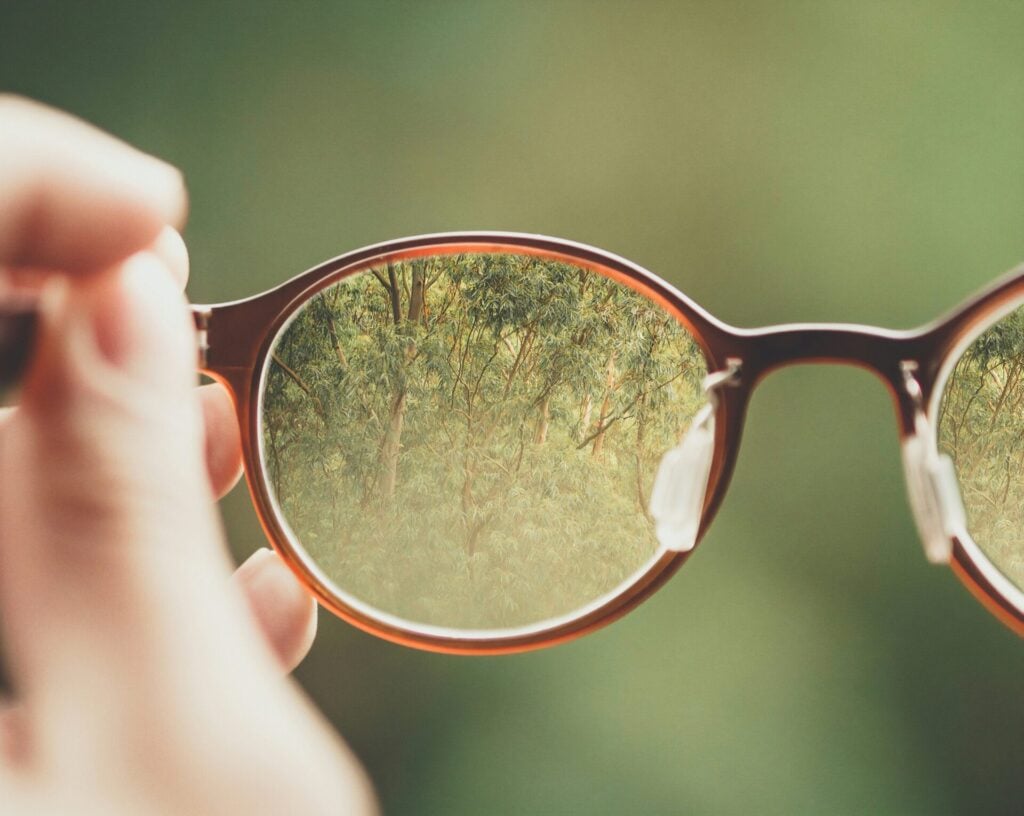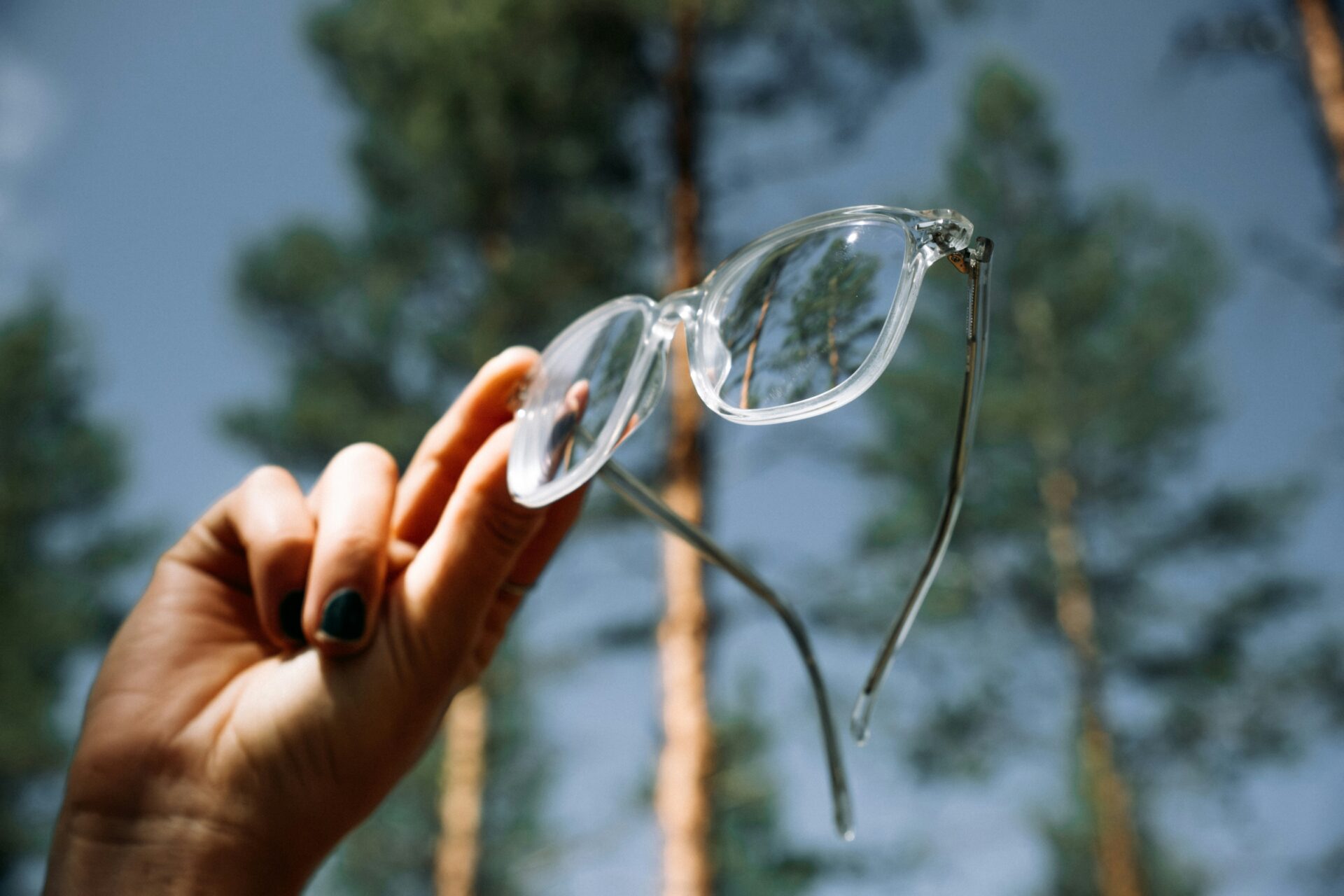Eyeglasses are an investment in both your vision and your style, but they aren’t cheap. Replacing them too often can take a toll on your wallet and the environment. Each new pair requires metal, plastic, and energy to produce, and most old frames end up in landfills.
Every year, millions of perfectly usable glasses end up in landfill simply because they’re scratched, broken, or replaced too soon. In North America alone, more than 4 million pairs of reading glasses are thrown away annually, while optical stores in Belgium and the Netherlands discard over 4.4 million frames each year.
It’s not just about what we toss, waste begins at the manufacturing stage, too where up to 75 percent of acetate used in eyewear production never even makes it into a finished pair of eyeglasses. The result is an industry generating mountains of plastic and metal waste.
Many people don’t realise that small daily habits, such as how they clean, handle, or store their glasses, can drastically shorten their lifespan. The good news is that with just a few mindful changes, you can extend the life of your glasses, save money, and reduce waste.
Here are seven simple yet effective habits to help your eyeglasses last longer and stay crystal clear.
Start with Quality
If you want your glasses to last, it starts with choosing well-made frames and lenses. Cheap frames might look stylish, but they often bend, crack, or lose their shape quickly. Lower-quality lenses can also scratch easily, distort over time, or lose protective coatings.
Investing in good materials—such as titanium, stainless steel, or high-quality acetate—means your eyeglasses can withstand years of use. Premium lenses often come with anti-scratch and UV protection coatings that not only enhance vision but also extend durability.
Beyond personal benefit, choosing quality is an environmentally friendly decision. High-quality eyeglasses stay in service longer, which means fewer replacements and less production waste. Think of it as buying once, buying well—a mindset that supports sustainability.

Always Use Both Hands
Grabbing your eyeglasses with one hand might feel easier, but it slowly weakens the hinges and bends the frame. Over time, this causes misalignment, discomfort, and uneven pressure on your temples and nose.
Using both hands distributes the pressure evenly, keeping the arms straight and the lenses properly aligned with your eyes. It also helps maintain the balance of prescription lenses, ensuring you always see clearly through the correct focal point.
This small habit not only preserves comfort and fit but also saves you from early replacements. Fewer damaged frames mean less manufacturing waste and fewer discarded materials, a win for you and the planet.
Clean Lenses the Safe Way
Cleaning your lenses might seem simple, but doing it the wrong way is one of the fastest ways to ruin them. Always rinse your glasses with lukewarm water before wiping. This removes tiny dust particles that can scratch the surface if rubbed in dry.
Use a gentle lens solution and a microfiber cloth to clean them. Avoid using paper towels, napkins, shirts, or tissues, as their fibers can scratch lenses or wear away coatings. Also steer clear of household cleaners like window spray or vinegar as they’re too harsh for delicate lens coatings.
Safe cleaning not only keeps your view clear but also protects your coatings and lenses for the long term. When your lenses last longer, you reduce waste and energy used in producing replacements, making it an easy eco-friendly habit to adopt.

Store Them Safely
How you store your glasses can make a huge difference in how long they last. When not in use, always place them in a hard-shell case. It protects them from scratches, crushing, and accidental falls.
Avoid leaving your eyeglasses lens-down on tables or counters. Even small grit on a surface can cause micro-scratches. And never leave them in places with extreme temperatures, like your car dashboard. Heat can warp frames and damage lens coatings.
Consider keeping a protective case in your bag, car, or workplace so you’re never tempted to toss your glasses into a pocket or purse unprotected. Proper storage extends the life of your frames, saves money on repairs, and prevents more broken plastic from entering landfills.
Keep Them Off Your Head
Many of us rest our glasses on top of our heads when we don’t need them for a moment. Unfortunately, this is one of the fastest ways to stretch out the arms and misalign the frames. The shape of your head is usually wider than your face, so the arms spread apart and lose their original fit.
This not only affects comfort but also can change the alignment of prescription lenses, making your vision less sharp. Instead, use a case, a neck strap, or a designated spot to rest them safely.
It’s a simple adjustment that pays off: your frames stay snug, your vision stays sharp, and you contribute to a culture of care and sustainability rather than disposable use.

Handle with Clean Hands
Before adjusting or cleaning your eyeglasses, take a moment to wash your hands. Natural oils, lotions, and dirt transfer easily onto lenses, causing smudges that degrade coatings and attract more grime.
Clean hands mean cleaner lenses and fewer scratches caused by trapped debris. This also prevents the slow breakdown of frame finishes and nose pads from repeated contact with oils and sweat.
While it might seem small, this habit not only keeps your glasses looking new but also helps them last months—or even years—longer. Every extra month you get from your glasses is another small step away from unnecessary consumption.
Don’t Delay Minor Repairs
A loose screw, wobbly arm, or slipping nose pad might not seem like a big deal, but small problems can quickly become big ones. Regular tune-ups help prevent frames from breaking or lenses from popping out.
Most opticians offer free or low-cost adjustments, and it only takes a few minutes. You can also buy a small repair kit to tighten screws at home. Addressing these issues early keeps your glasses structurally sound and extends their lifespan significantly.
By repairing instead of replacing, you save both money and materials. Fewer discarded frames mean fewer plastics and metals entering the waste stream—proof that maintenance is one of the simplest acts of environmental responsibility.

Taking care of your glasses isn’t complicated—it’s just a matter of awareness. By choosing quality, handling them carefully, cleaning them properly, storing them safely, avoiding bad habits, keeping your hands clean, and fixing small issues early, you can dramatically extend their lifespan.
These seven simple habits do more than save you money. They also reduce waste, lower demand for manufacturing, and help protect the environment. With just a bit of care, you can enjoy clearer vision, a lighter footprint, and the satisfaction of knowing you’re doing something good for yourself and the planet.
Start today—pick one or two habits and stick with them. Your eyes, your wallet, and the Earth will thank you.









